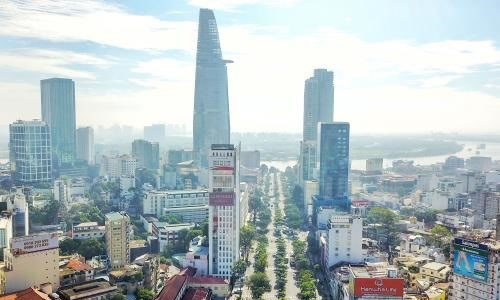Vietnam's smart city plans lack specifics
ABO/VNA - Major economic hubs of big cities and provinces nationwide have announced ambitious multi-billion dollar projects to become smart cities, well-equipped to take advantage of opportunities presented by the digital age.
 |
| A corner of Ho Chi Minh City (Photo: VNA) |
But so far, the country still lacks a specific standard framework for building a "smart city", experts said.
Many countries in the world are building intelligent cities based on information technology, telecommunications and many other factors.
In Vietnam, at least 30 cities and provinces such as Hanoi, Ho Chi Minh City, Da Nang, Binh Duong, Thai Nguyen and Kien Giang are looking forward to turning themselves into smart cities.
Ministries such as information and communications and science and technology have held many workshops on building smart cities to attract opinions from domestic and foreign experts, especially models and solutions on how to build a smart city in Vietnam.
Larry Ng Lye Hock, director of Singapore Urban Redevelopment Authority, said that when developing a smart city, simply applying the model of one city or country to a different city or country will not work.
He shared experiences of Singapore at a recent workshop on building smart urban areas towards sustainable development, which was organised by Architectural Magazine and AkzoNobel Paint Vietnam.
Each place has different conditions, environment and culture. Therefore, it was important to understand what the people of the city need and the city’s existing conditions to come up with the most appropriate solution, he said.
Tran Quoc Thai, deputy director of the Urban Development Department - Ministry of Construction (MoC), said the ministry was proposing a plan to develop a smart city by 2025 with a vision to 2030.
This was an important national project and required the active participation of all ministries, sectors and localities, especially enterprises, in order to effectively implement the tasks and objectives assigned by the Prime Minister, he said.
It is forecast that 70 percent of the world’s population will live in urban areas by 2050.
The rapidly increasing urbanisation in Vietnam would put tremendous pressure on the system of infrastructure, facilities and the living and working conditions of people, requiring architects and builders to grasp real trends and meet the demands of the community, Thai said.
Many complicated problems still remain in building an intelligent city, especially the limitation of financial and human resources, said Phan Tam, Deputy Minister of Information and Communications.
Besides, to develop smart cities, cooperation between product supply units and IT service providers should be improved further, Tam said.
Bui Quang Ngoc, General Director of FPT Corporation, affirmed it was necessary to have more internet-connected products and more new products serving to build an intelligent city.
With the goal of having at least three smart cities by 2020, the Government has also launched many policies to prioritise the development of digital industry, smart tourism, smart agriculture and telecommunication infrastructure.
(Source: VNA)
 về đầu trang
về đầu trang







